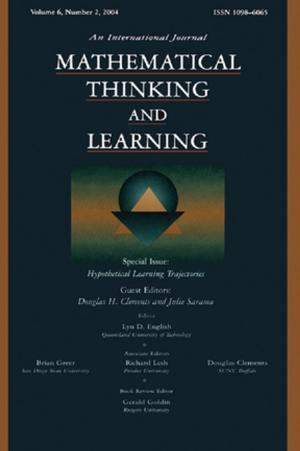Volume 11, Tome II: Kierkegaard's Influence on Philosophy
Francophone Philosophy
Nonfiction, Religion & Spirituality, Philosophy, Modern| Author: | ISBN: | 9781351875325 | |
| Publisher: | Taylor and Francis | Publication: | December 5, 2016 |
| Imprint: | Routledge | Language: | English |
| Author: | |
| ISBN: | 9781351875325 |
| Publisher: | Taylor and Francis |
| Publication: | December 5, 2016 |
| Imprint: | Routledge |
| Language: | English |
Kierkegaard's relation to the field of philosophy is a particularly complex and disputed one. He rejected the model of philosophical inquiry that was mainstream in his day and was careful to have his pseudonymous authors repeatedly disassociate themselves from philosophy. But although it seems clear that Kierkegaard never regarded himself as a philosopher, there can be no doubt that his writings contain philosophical ideas and insights and have been profoundly influential in a number of different philosophical traditions. The tomes in this volume seek to document the different traditions of the philosophical reception of Kierkegaard's thought and the articles demonstrate the reach of Kierkegaard's writings in philosophical contexts that were often different from his own. The present volume attempts to document these different traditions of the philosophical reception of Kierkegaard's thought. The articles featured here aim to demonstrate the vast reach of Kierkegaard's writings in philosophical contexts that were often quite different from his own. Tome II is dedicated to exploring Kierkegaard's influence on Francophone philosophy. The French intellectual tradition squares well with Kierkegaard's eclectic profile since its leading figures are often difficult to classify unambiguously as philosophers, theologians, literary critics or simply writers. Kierkegaard's thinking was highly influential for many generations of French philosophers right up to the present. It was not just existentialism that tried to co-opt Kierkegaard for its own purposes; he has also been influential in the context of almost every modern school of French thought: phenomenology, feminism, structuralism, post-structuralism, semiotics, and deconstruction.
Kierkegaard's relation to the field of philosophy is a particularly complex and disputed one. He rejected the model of philosophical inquiry that was mainstream in his day and was careful to have his pseudonymous authors repeatedly disassociate themselves from philosophy. But although it seems clear that Kierkegaard never regarded himself as a philosopher, there can be no doubt that his writings contain philosophical ideas and insights and have been profoundly influential in a number of different philosophical traditions. The tomes in this volume seek to document the different traditions of the philosophical reception of Kierkegaard's thought and the articles demonstrate the reach of Kierkegaard's writings in philosophical contexts that were often different from his own. The present volume attempts to document these different traditions of the philosophical reception of Kierkegaard's thought. The articles featured here aim to demonstrate the vast reach of Kierkegaard's writings in philosophical contexts that were often quite different from his own. Tome II is dedicated to exploring Kierkegaard's influence on Francophone philosophy. The French intellectual tradition squares well with Kierkegaard's eclectic profile since its leading figures are often difficult to classify unambiguously as philosophers, theologians, literary critics or simply writers. Kierkegaard's thinking was highly influential for many generations of French philosophers right up to the present. It was not just existentialism that tried to co-opt Kierkegaard for its own purposes; he has also been influential in the context of almost every modern school of French thought: phenomenology, feminism, structuralism, post-structuralism, semiotics, and deconstruction.















